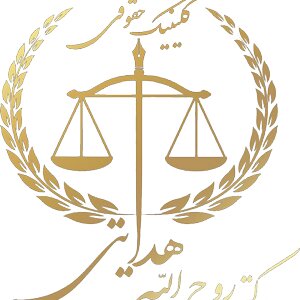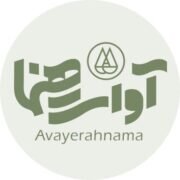Best ADR Mediation & Arbitration Lawyers in Mashhad
Share your needs with us, get contacted by law firms.
Free. Takes 2 min.
List of the best lawyers in Mashhad, Iran
About ADR Mediation & Arbitration Law in Mashhad, Iran
Alternative Dispute Resolution (ADR) methods, including mediation and arbitration, offer parties in Mashhad, Iran, a path to settle legal disputes outside traditional courtrooms. Mediation involves a neutral third-party facilitator who helps disputing parties come to a mutually agreeable solution, while arbitration submits the dispute to an impartial arbitrator who renders a binding decision. These methods are becoming increasingly popular in Mashhad due to their efficiency, confidentiality, and cost-effectiveness compared to litigation. Iran’s legal framework acknowledges and promotes ADR processes, making them a vital part of the justice system in Mashhad.
Why You May Need a Lawyer
People often require legal help with ADR mediation and arbitration in Mashhad for several reasons. Complexities in legal documentation, unfamiliarity with formal ADR procedures, and the need to ensure fair and enforceable outcomes can all make legal advice invaluable. Common situations include business contract or commercial disputes, family and inheritance issues, employment disagreements, and property or real estate conflicts. A lawyer ensures your interests are protected, helps in drafting or reviewing arbitration and mediation agreements, represents you during proceedings, and guides you through the enforcement of decisions.
Local Laws Overview
Mashhad adheres to national Iranian laws regarding ADR, including regulations in the Iranian Civil Procedure Code and the Law on International Commercial Arbitration. These laws provide a legal framework for both domestic and international disputes. Key aspects include the recognition and enforcement of arbitration awards, the requirement for written agreements to use arbitration, and the role of mediators and arbitrators as neutral, qualified professionals. Local courts in Mashhad can compel parties to arbitrate if there is a prior agreement and have authority over the enforcement or annulment of arbitration decisions. Confidentiality, voluntary participation (for mediation), and fairness remain central principles in ADR proceedings.
Frequently Asked Questions
What is the difference between mediation and arbitration?
Mediation is a voluntary process where a neutral mediator helps parties find a mutually acceptable resolution. Arbitration is a more formal process where an arbitrator hears both sides and makes a binding decision.
Are ADR methods recognized by Mashhad courts?
Yes, both mediation and arbitration are legally recognized, and Mashhad courts can enforce legitimate mediation agreements and arbitration awards according to Iranian laws.
Do I need a written agreement to use arbitration?
Yes, a written agreement is generally required for arbitration to be valid and enforceable in Mashhad and under Iranian law.
Can arbitration awards be appealed or challenged in court?
Arbitration awards are usually final and binding. However, parties can challenge awards in certain circumstances, such as procedural irregularities or lack of jurisdiction, by applying to a competent court in Mashhad.
Are mediation agreements legally binding?
Mediation agreements become legally binding when all parties sign the settlement and the agreement does not violate the law or public policy.
Who appoints mediators and arbitrators in Mashhad?
Mediators and arbitrators may be jointly selected by the disputing parties or, if parties cannot agree, may be appointed by a relevant organization or court based on the ADR agreement.
How long does the ADR process typically take?
ADR processes are generally much faster than court proceedings. The timeframe varies depending on the complexity of the dispute and the parties' willingness to cooperate, from a few days to several months.
Can foreigners use ADR services in Mashhad?
Yes, both Iranian nationals and foreigners can use ADR methods for resolving disputes, including international commercial arbitration for cross-border transactions.
What are the costs associated with mediation or arbitration?
Costs vary by the complexity and value of the dispute, the experience of the mediator or arbitrator, and organizational fees. Generally, ADR is considered more cost-effective than litigation.
Can a lawyer represent me during mediation or arbitration?
Yes, you have the right to be represented by a lawyer during all stages of mediation and arbitration in Mashhad.
Additional Resources
If you need more information or assistance, the following organizations and bodies can be of help in Mashhad and Iran:
- Iranian Bar Association - Mashhad Branch: Offers lists of qualified ADR lawyers and legal consultations.
- Mashhad Chamber of Commerce, Industries, Mines, and Agriculture: Provides ADR services for commercial and business disputes.
- The Iranian Judiciary: Handles the oversight of arbitration enforcement and can appoint arbitrators when necessary.
- The Arbitration Center of Iran Chamber (ACIC): Specialized in international and domestic commercial arbitration cases.
Next Steps
If you are considering mediation or arbitration for your dispute in Mashhad, start by consulting an experienced local lawyer specializing in ADR. Gather all relevant documents and agreements, clarify your objectives, and schedule an initial consultation. Your lawyer will evaluate the best ADR strategy, draft or review necessary agreements, and represent your interests throughout the process. For complex or international matters, ensure your legal representative is familiar with cross-border ADR regulations. Taking these steps will help protect your rights and improve the likelihood of an efficient, fair resolution.
Lawzana helps you find the best lawyers and law firms in Mashhad through a curated and pre-screened list of qualified legal professionals. Our platform offers rankings and detailed profiles of attorneys and law firms, allowing you to compare based on practice areas, including ADR Mediation & Arbitration , experience, and client feedback.
Each profile includes a description of the firm's areas of practice, client reviews, team members and partners, year of establishment, spoken languages, office locations, contact information, social media presence, and any published articles or resources. Most firms on our platform speak English and are experienced in both local and international legal matters.
Get a quote from top-rated law firms in Mashhad, Iran — quickly, securely, and without unnecessary hassle.
Disclaimer:
The information provided on this page is for general informational purposes only and does not constitute legal advice. While we strive to ensure the accuracy and relevance of the content, legal information may change over time, and interpretations of the law can vary. You should always consult with a qualified legal professional for advice specific to your situation.
We disclaim all liability for actions taken or not taken based on the content of this page. If you believe any information is incorrect or outdated, please contact us, and we will review and update it where appropriate.









